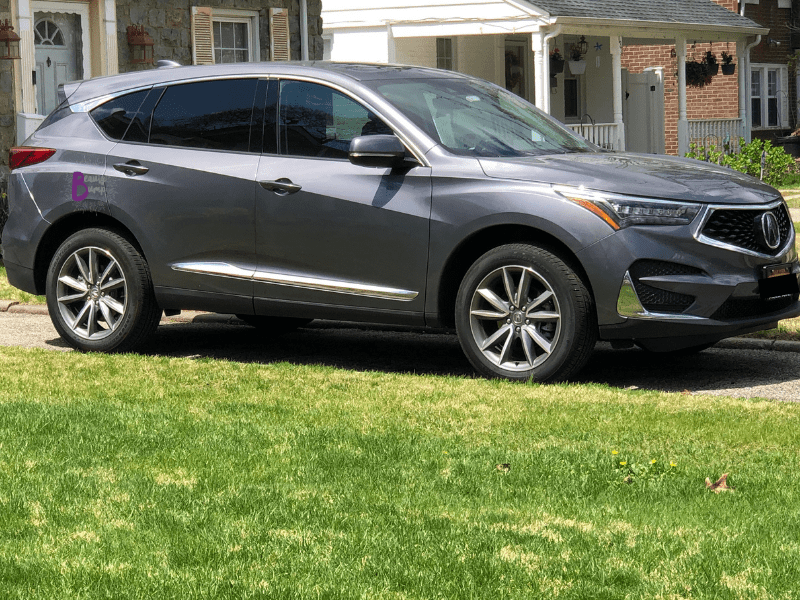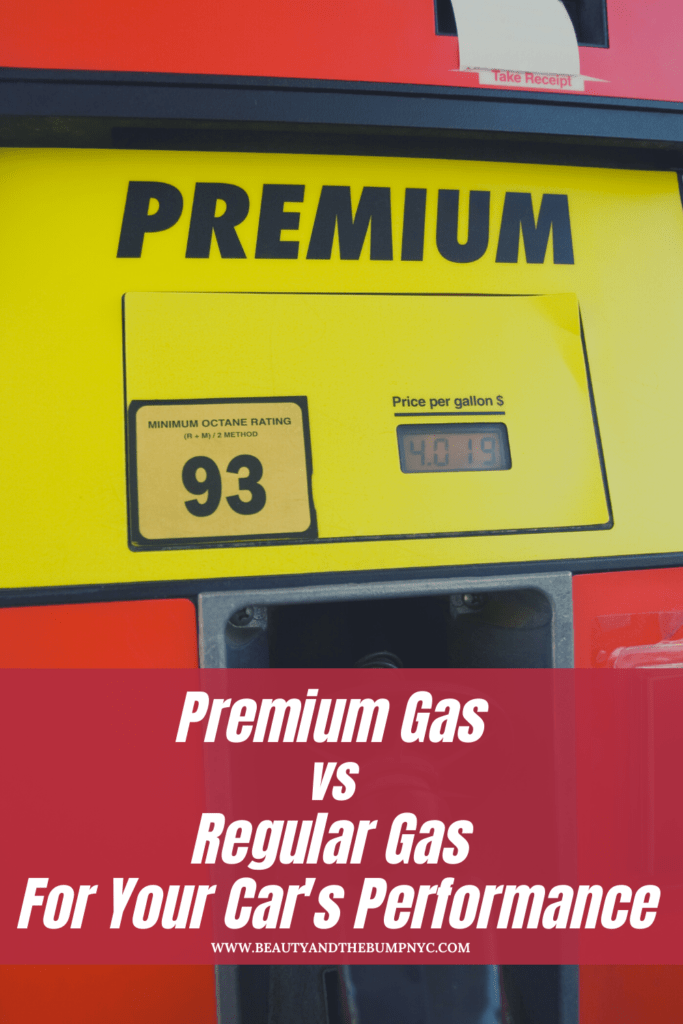When you pull up to the pump chances are, you have your routine down. You know what gas you’re filling up with, but do you know why? How often, if ever, have you thought about how gas might affect your vehicle’s performance? I admit it’s not something I ever really considered, but when I purchased my 2021 Acura RDX the dealer suggested that I use premium gas. “Suggested” is the operative word, because premium gas is not required for this particular vehicle. That got me wondering. Should I be using premium gas? Have I been doing it wrong?
Related: The Top 6 Car Buying Tips for Parents Buying a New Car
Gasoline is a necessary evil for a lot of cars, even fuel-efficient hybrids. Petrol-guzzling road monsters aren’t the only vehicles that still rely on fossil fuels to run properly. While everyone on the road must succumb to the prices at the pump, the type of gas you use will have a big impact on the amount you end up paying. Unsurprisingly premium gas costs more. Apparently, it’s good for your car but is this always the case. Should I be paying more at the pump to take good care of my new car?

Buying gas is like buying food for your vehicle. There’s even a menu and it usually looks like this:
- Regular
- Premium
- Super Premium
These options for feeding your car are more about what your engine requires to function smoothly. Don’t think switching to super-premium will suddenly make your car drive better. It’s more about maintenance than performance. The reason high-performance vehicles require premium gas is that it’s better on the engine. It doesn’t improve your car’s performance any more than Air Jordans will make you jump higher or suddenly be able to dunk. So how do you make this important decision that might impact the health and longevity of your car? Let’s start at the top to see what your car needs.

When Does Your Car Need Super Premium Gas?
Unless you’re riding around town in a Lamborghini, Porsche, or high-end performance vehicle, your car doesn’t ever need super-premium gasoline.
This type of fuel was designed specifically for extremely high compression engines and those alone. High compression engines are designed to go from 0-60mph in a matter of a few seconds, offering up the most speed and horsepower for the money. These engines are designed with high-octane adrenaline in mind. Think about the most exciting car chase scene you’ve ever seen in a movie. As a matter of fact, leave that in the comments. I want to see your favorites. Most of us don’t deal with situations like that in our driving, which is why they’re so exciting to watch. It’s also precisely why super premium gas is a non-starter for regular folks like us who drive a typical 4 or 6 cylinder car.

Should I Be Using Premium Gas, Though?
This is where your choice of gasoline can get a bit confusing. Some mid-range vehicles like Honda Accords or Toyota Camry might have a statement in the owner’s manual that the car will function better using premium gasoline as opposed to regular. This will, again, have to do with high compression engines, but not on the same scale as high-end performance cars.
High compression engines are designed to squeeze the best performance out of smaller engines, which means that you can drive a 4-cylinder car and have the performance and speed of a 6-cylinder car.
The reason that high compression engines call for premium gas is solely performance-based. Higher-octane fuels require a higher temperature and pressure to ignite, resulting in less premature ignition. Pre-ignition is when the fuel lights up before the spark plug can fire and often results in engine knocking. The later ignition of high octane fuel improves the performance of your engine by allowing it to run more smoothly.
However, despite the benefits of premium gas, in many of these cars, you can still use normal gasoline, It mostly depends on how you use your car. Basically, if you’re a mom doing everyday driving, there really is no need to splurge on premium gas. Save the money to use for something fun. But if you put your car to work, giving it higher octane fuel will help it last longer and stay reliable.

Does Premium Gas Improve Your Car’s Performance?
Premium gas adds little to no benefit to your car’s performance, especially if your engine isn’t optimized for higher-octane gas. Most cars do just fine with regular gas. Higher performance fuels are only intended for vehicles that are already tooled for high performance.
The only scenario in which you should consider choosing premium gas in a normal vehicle would be to haul heavy loads up hills for extended periods of time. Even then, it won’t increase the performance of your engine, but it might provide some protection for it under extreme conditions.
Is Regular Gas My Best Choice
It may very well be. Premium is not automatically better. Even if the dealer suggests it, it may not be the right fit for you or your car. The fuel you use is a lifestyle-based decision. It’s like your diet. Is your car a bodybuilder, or is it a morning jogger? If you do choose regular gas make sure it’s from a top-tier gasoline company like Conoco, BP, etc. They have fewer detergents, which is easier on engines.
There is one other reason to buy premium gas. It’s an easy upsell for the oil company. It can cost 20-30 cents more per gallon. That’s easily a couple of hundred dollars per year. That added cost has no conclusive benefits for the performance of regular cars. Unless you’re planning on funding a wealthy oil executive’s vacation fund, regular gas is more than fine, it’s your best value and the smartest choice. Regular gas is perfectly fine for a day-to-day commute, even in mid-range vehicles that recommend premium gasoline. Save your money and buy a new pair of shoes. Maybe jogging shoes.

